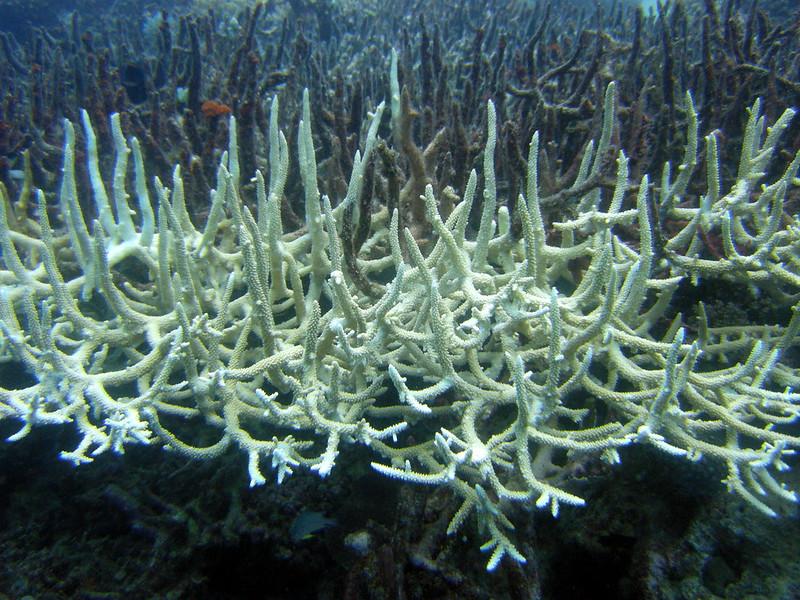
Planet A
The International Union for Conservation of Nature, which advises the UNESCO World Heritage Committee, released a report last week finding that climate change is the biggest threat to natural world heritage sites. This includes the Great Barrier Reef, which for the first time has been marked as ‘critical’, the highest status of concern under the IUCN ranking system. Four other Australian world heritage sites, including the Blue Mountains and the Gondwana rainforests, have deteriorated since the previous IUCN report in 2017.
Australia’s commitments to protecting its world heritage sites are set out in the Environment Protection and Biodiversity Conservation Act. The act makes it an offence to negatively affect a site’s world heritage value, but it’s unclear if the adverse effects of climate change qualify as such an offence. However, the decline of the Great Barrier Reef and other sites while Australia is under pressure to take stronger action on climate change will likely serve to further harm its international reputation.
Democracy watch
Tens of thousands of Indian farmers have been protesting for months against new laws that will allow major agricultural corporations to set crop prices below current rates—a move that could devastate farmers’ livelihoods. The protesters, mostly from the Punjab region, say they will continue to intensify their demonstrations. The Indian government has indicated it will negotiate with the farmers only if they stop their protests. Right-wing politicians and media outlets have labelled the protesting farmers as ‘anti-national’.
Farmers and farm workers are a large political constituency in India, with more than 60% of the population’s income dependent on agriculture. However, activist Medha Patkar says that the farmers ‘are not getting due respect, nor the political and economic space they deserve’. With India entering into a recession as a result of the Covid-19 pandemic, much of the population is already in a vulnerable position. If protests spread beyond Punjab to the rest of the country, the high level of popularity Prime Minister Narendra Modi enjoys among India’s rural population may be tested.
Information operations
The Carnegie Endowment for International Peace has reviewed policy proposals made since 2016 to counter influence operations and created a database to help policymakers recognise emerging areas of expert consensus. The review found that recommendations tended to focus on addressing government and industry actors, while the most popular policy initiatives were about supporting data sharing, media literacy and independent media and enacting new rules or practices for platforms.
A lack of collaboration among governments, platforms, civil society groups and academia was identified as one of the most important challenges, along with a lack of funding, and access to corporate data.
Not included in the review was the European Union’s recently released democracy action plan, which considers other approaches to countering disinformation such as publicly identifying commonly used techniques or sanctioning repeat offenders. Influence and disinformation operations centred on Covid-19 and the US election have led to civic breakdown in parts of the US this year, but such activity poses an increasing threat to all democracies.
Follow the money
On Monday, EU Commission President Ursula von der Leyen and British Prime Minister Boris Johnson released a joint statement saying conditions for finalising a post-Brexit EU–UK trade agreement had not been satisfied. Both sides have until 31 December to complete a deal, but differences remain over issues including business competition policy and fishing rights.
The UK was also debating two pieces of legislation which were negatively affecting negotiations. The bills featured clauses that could allow the UK to ignore customs provisions related to Northern Ireland, though the UK has now agreed to drop those parts of the legislation.
Johnson is set to travel to Brussels to continue talks in person. EU diplomats have said the outcome of discussions is uncertain. If a deal is not reached, trade barriers between the UK and the EU will take effect in the new year, clogging up borders, disrupting financial markets and fracturing supply chains—possibly including those for Pfizer/BioNTech’s Covid-19 vaccine.
Terror byte
In light of recent terrorist attacks in France, including the beheading of schoolteacher Samuel Paty, President Emmanuel Macron’s response has been subject to harsh criticism, both domestically and abroad. At issue is France’s enforced secularism, which some have argued has inflamed Islamic radicalisation, and the more multicultural and inclusive approach to integration and counterterrorism taken by the US and the UK, for example.
Analysis published on The Conversation has highlighted the importance of education and training in eradicating extremism from schools. It concludes that, despite clear differences, both the UK and France should opt for a more inclusive approach; invest in training teachers to deal with complex situations; and respectfully discuss civic values, religious beliefs and terrorism in the classroom.